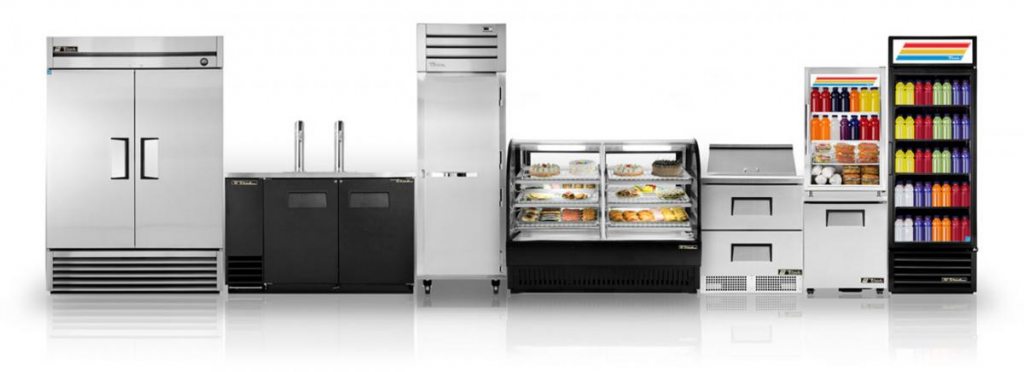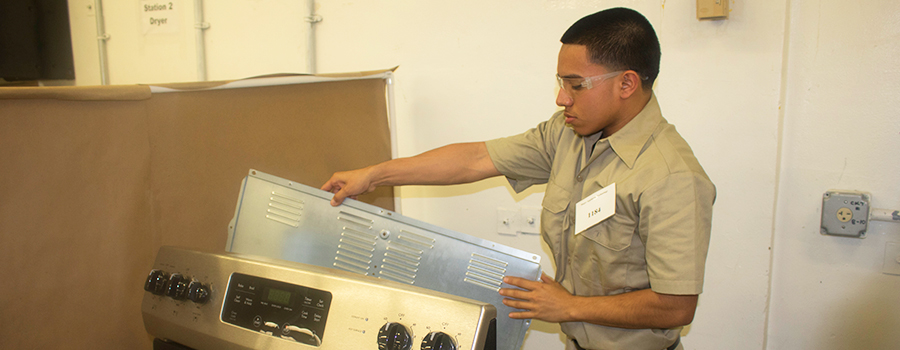Important Tips for Effective Ref Repair to Extend Device Life-span
When it comes to your refrigerator, appropriate repair work and upkeep are vital for durability. Comprehending common issues and knowing when to act can make all the distinction.
Understanding Typical Refrigerator Problems
Fridges are vital in keeping your food fresh, but they can come across an array of common troubles that interrupt their performance. If you see food ruining quicker than typical, inspect the thermostat setups or think about if the door seals are harmed. Identifying these concerns early can conserve you time and cash in repair services, ensuring your refrigerator runs efficiently and efficiently.
Normal Maintenance Practices
To maintain your home appliances running smoothly, you need to remain on top of normal upkeep practices. Tidy the condenser coils, inspect the door seals, and keep an eye on the temperature level settings to ensure peak efficiency. These straightforward tasks can conserve you money and time on fixings down the line.
Clean Condenser Coils Frequently
Cleansing your condenser coils frequently can substantially boost your appliance's efficiency. Dirt and dirt construct up on these coils over time, creating your appliance to function harder and eat more power. To keep them clean, disconnect your device and carefully get rid of any kind of safety covers.
Examine Door Seals
Three basic steps can help you assure your device's door seals are in good condition. Examine the seals regularly for any type of cracks, tears, or indications of wear. These problems can lead to air leakages, influencing performance. Second, clean the seals utilizing cozy, soapy water to remove any type of particles or gunk. A tidy seal ensures a tight fit and better performance. Finally, execute an easy examination by shutting the door on a piece of paper. If you can quickly pull it out without resistance, the seal might require replacing. By following these steps, you'll keep your device's performance and longevity, conserving you cash on power bills and repair work in the lengthy run.
Monitor Temperature Level Settings
Frequently checking your home appliance's temperature settings is essential for finest efficiency and efficiency. Make use of a thermostat to check these settings routinely, specifically after significant adjustments, like relocating your home appliance or adjusting the thermostat. By remaining aggressive about temperature tracking, you'll ensure your devices run efficiently and last longer.
Troubleshooting Air Conditioning Issues
When your refrigerator isn't cooling down effectively, it can result in ruined food and threw away cash, so dealing with the problem promptly is important. Start by checking the temperature settings to confirm they go to the suggested levels, typically around 37 ° F for the refrigerator and 0 ° F for the fridge freezer. If the settings are proper, inspect the door seals for any gaps or damages; a malfunctioning seal can permit cozy air to go into.
Next, examine the vents inside the fridge and freezer. Validate they're not obstructed by food items, as this can interrupt airflow. Listen for the compressor; if it's not running or making uncommon sounds, it may need focus. Inspect the condenser coils, typically situated at the back or base of the unit. Dirt and particles can collect, triggering cooling down problems. Tidy them with a vacuum cleaner or brush to maximize performance. If issues persist, it could be time to call a specialist.
Dealing With Water Leakage and Ice Build-Up
If you're taking care of water leakage or ice accumulation in your home appliance, it's important to identify the resource of the problem. By pinpointing where the water is coming from, you can avoid more problems and prevent expensive repair work. Let's explore some effective approaches to tackle these usual problems.
Recognize Leakage Resources
How can you effectively recognize the resources of water leakage and ice accumulation in your home appliances? Beginning by evaluating the seals and gaskets on your refrigerator and freezer doors. A used or broken seal can permit cozy air to enter, triggering condensation and ice. Next, examine the drainpipe frying pan and drainage system for obstructions or clogs; a backed-up drain can bring about water pooling. Seek any type of loose links in the water line, which can produce leakages. Also, analyze the defrost drainpipe for ice build-up, which might interrupt proper drainage. By systematically examining these areas, you'll determine the resource of the problem, allowing you to take the needed steps to fix it and extend your device's life expectancy.
Stop Ice Formation
To stop ice formation in your appliances, beginning by confirming the temperature level settings are suitable. If your refrigerator or freezer is also cool, it can cause excessive ice build-up. Examine the door seals on a regular basis; damaged seals can let warm air in, triggering condensation and look here ice formation.
Maintain the appliance well-ventilated and stay clear of congestion, as this can block air flow - GE appliance repair Oro Valley Dependable Refrigeration & Appliance Repair Service. Likewise, regularly defrost your freezer if it does not have an automatic defrost function.
If you see water leak, recognize and repair any kind of blocked drain openings, as they can add to ice build-up. Finally, clean the coils and validate they're functioning properly to preserve peak performance. Taking these steps will certainly assist prolong your appliance's life expectancy and efficiency.
Attending To Noisy Refrigerator Seems
While it may appear disconcerting, a noisy refrigerator often signals minor issues rather than significant breakdowns. Common offenders include the compressor, followers, and water lines.
Next, check for loosened products inside. Sometimes, containers or shelves can rattle, producing undesirable noise. Tighten up or rearrange them to remove the noises.
If you observe a clicking noise, it could be the defrost timer. This is generally harmless but could show it needs assessment.
An out of balance appliance can create vibrations and noise. GE appliance repair Oro Valley Dependable Refrigeration & Appliance Repair Service. Attending to these issues immediately can aid keep your refrigerator's efficiency and prolong its lifespan.
When to Replace Components vs. Complete Replacement

Consider the cost of repair services versus the device's worth. In addition, if you see recurring issues that keep reoccuring, it's an indicator that your home appliance has actually gotten to the end of its life.
Understanding When to Call a Specialist
Just how can you inform when it's time to call in a specialist for appliance fixing? If your appliance stops working altogether or frequently journeys circuit breakers, it's another red flag.
You ought to also consider your own comfort level with repair work. If you're unsure concerning detecting the problem or do not have the right tools, it's ideal to reach out for assistance. Keep in mind, attempting difficult repair services can lead to even more damages and even safety threats.

Often Asked Questions
Exactly how Often Should I Clean the Refrigerator Coils?
You must cleanse your refrigerator coils every six months. This assists keep effectiveness and prevents overheating. If you notice excessive dirt or pet hair, tidy them a lot more d1 appliance repair often to assure your refrigerator runs smoothly.

Can I Use Vinegar for Cleansing My Refrigerator?
Yes, you can make use of vinegar to cleanse your refrigerator! It's an excellent all-natural cleaner that eliminates smells and stains. Washing Machine Repair Dependable Refrigeration & Appliance Repair Service. Just mix it with water, use it to surfaces, and wipe down for a fresh, tidy refrigerator
What Temperature Should My Refrigerator Be Ready To?
You need to set your fridge to 37 ° F(3 ° C) for excellent food conservation. This temperature level maintains your food fresh while preventing wasting, ensuring your grocery stores last much longer and decreasing waste. It's a simple adjustment you can make!
Does a Fridge Need to Be Leveled?
Yes, your refrigerator requires to be leveled. If it's uneven, it can affect cooling down performance and trigger excess noise. Check the leveling legs and adjust them to guarantee appropriate equilibrium for click here now ideal efficiency.
Just How Can I Lower Refrigerator Power Intake?
To decrease your refrigerator's energy intake, keep it clean and well-ventilated, inspect door seals for leakages, established the temperature level between 35-38 ° F, and avoid overwhelming it. These actions can substantially reduce your energy expenses.